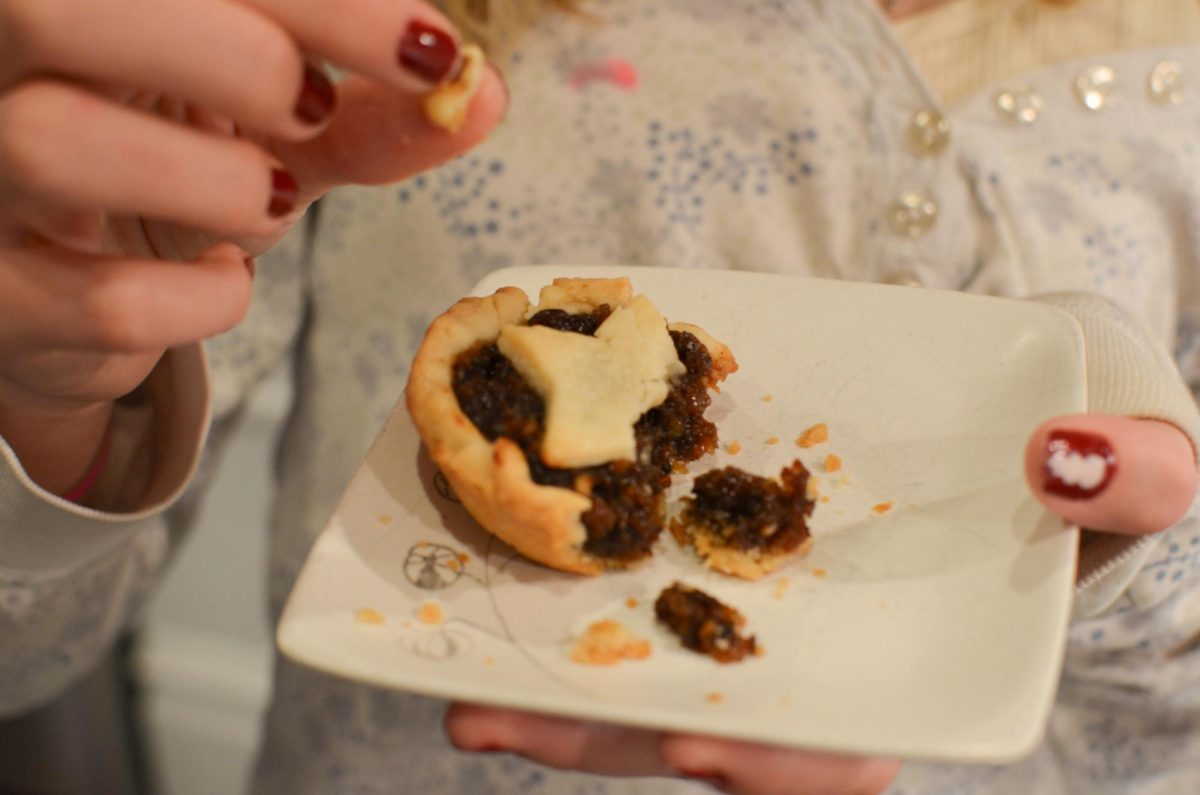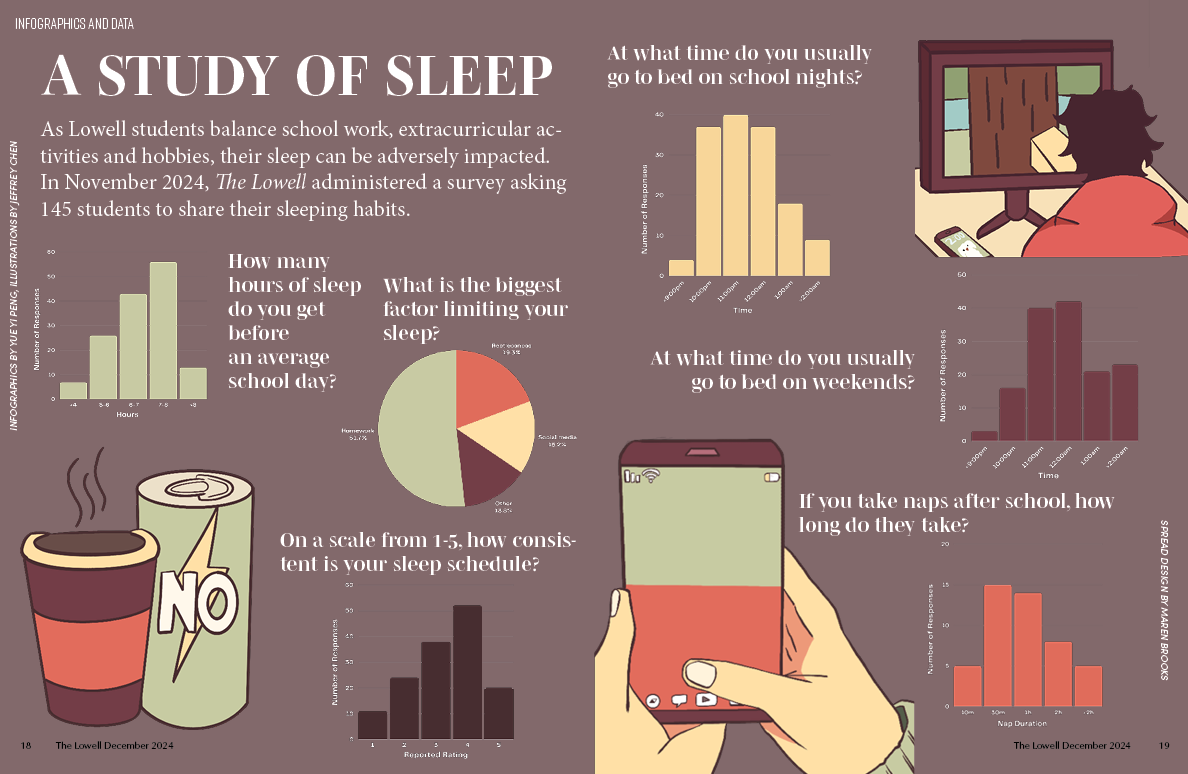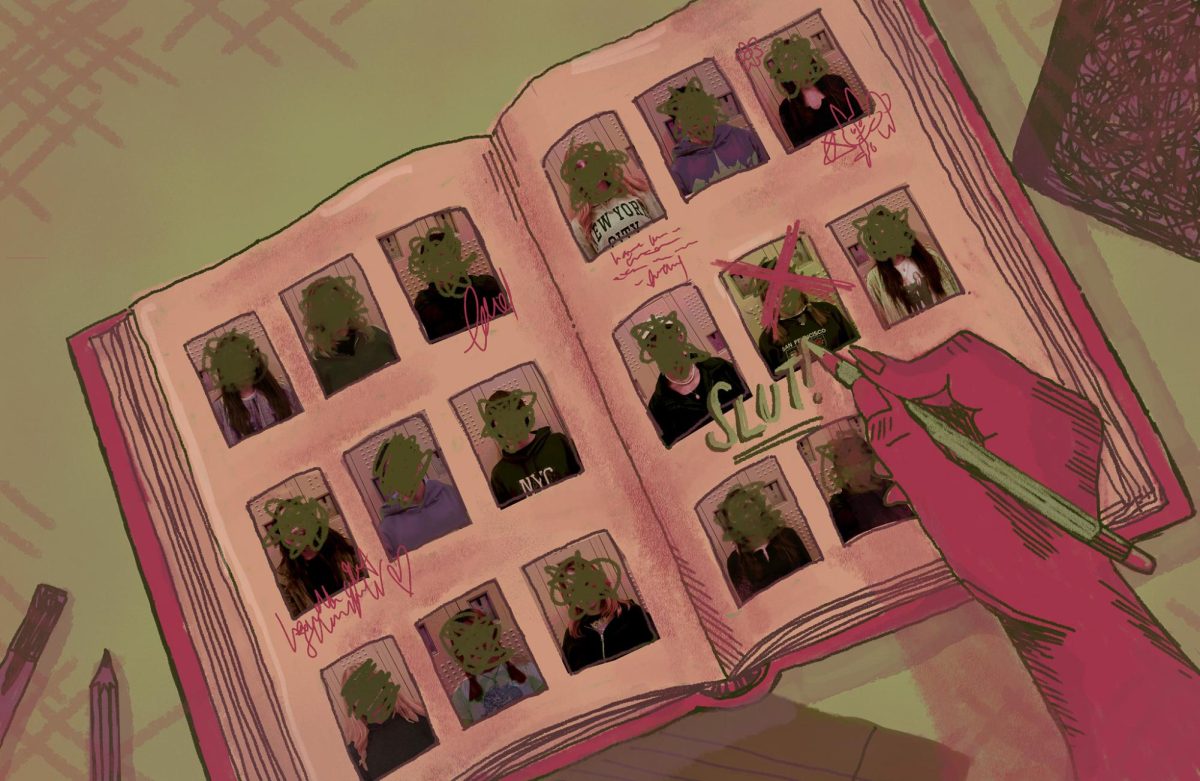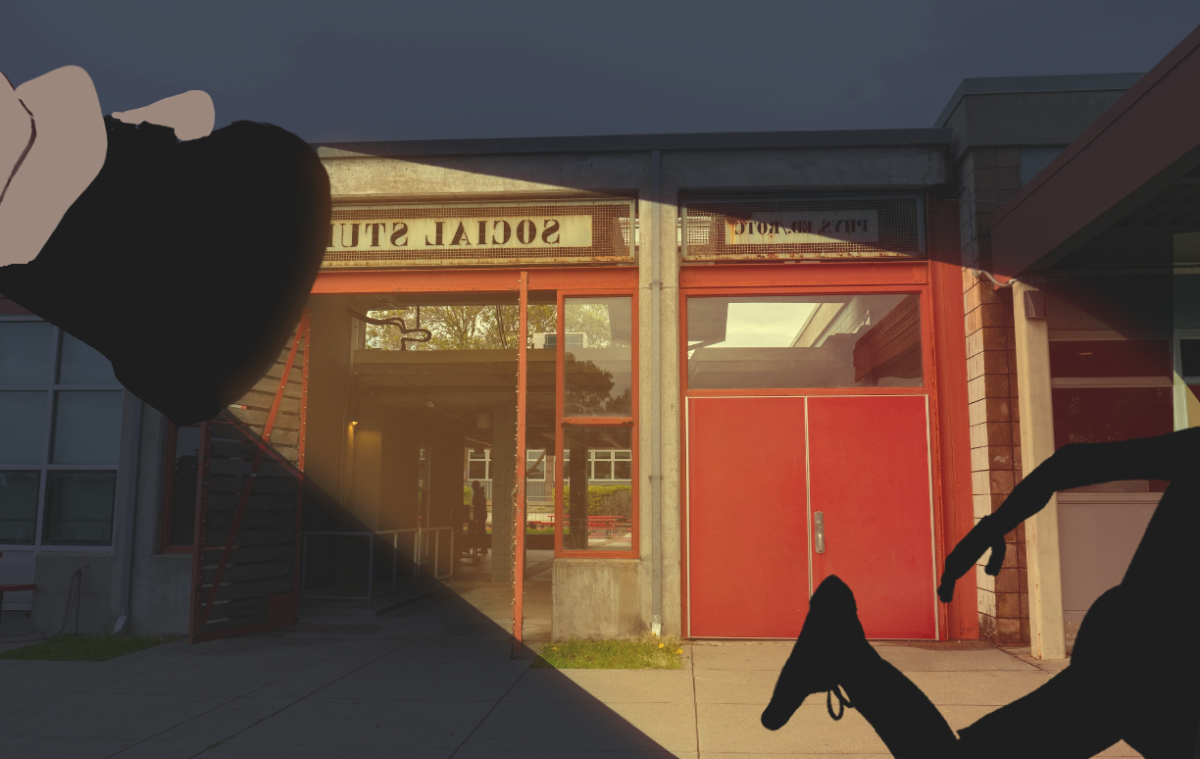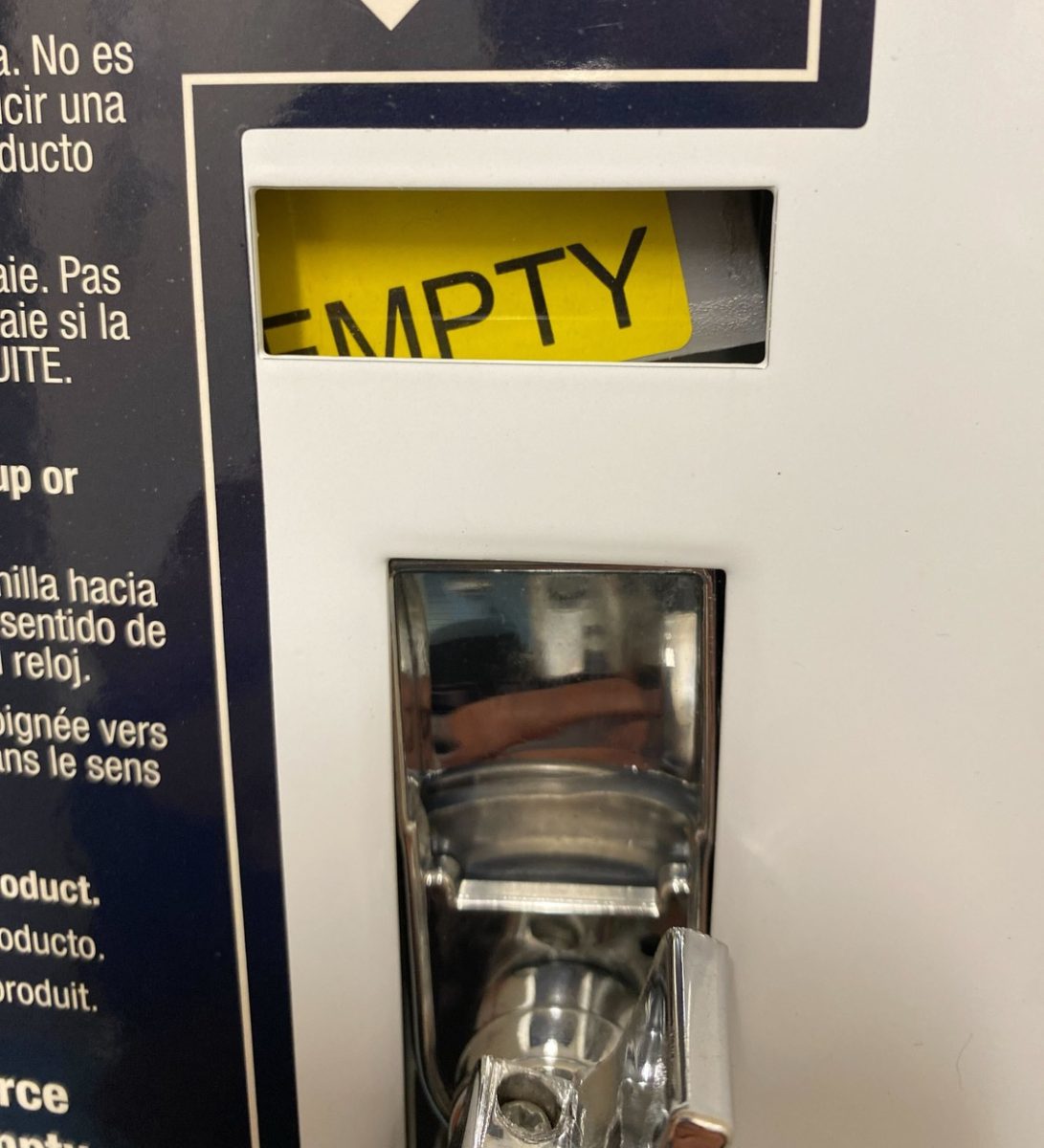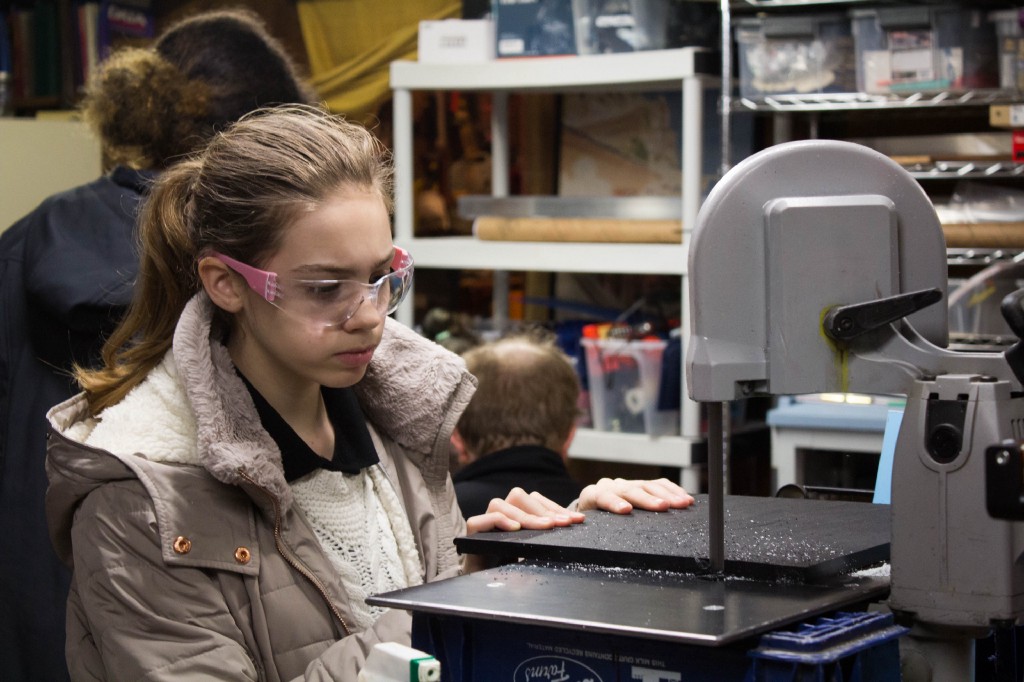
The team gathered around the field as all the eyes in the room followed the movement of the 90-inch autonomous robot. It had retrieved the boulders, breached through opponent’s defenses and now arrived in front of the 7 ft tower. Everyone held their breath as the robot angled its best shot toward the castle. Behind the shields of the drive station, senior Anya Jensen was immersed in maneuvering the controls and speedily analyzing the team’s strategies. As the boulder flew through the target window, the light strips illuminating the castle immediately darkened, signalling the team’s victory.
“In build season, for me, I learned how much I really love engineering. I want these girls to have that chance to get that feeling too.”

This scene from the 2016 For Inspiration and Recognition of Science and Technology (FIRST) Robotics Competition marked another milestone of the drive team, where they had successfully advanced into the championship. Although the gender gap in engineering persists, at Lowell’s CardinalBotics, the ratio between male and female students is close to even. Among the group of girls, Jensen, the former public relations vice president of the CardinalBotics, was moved by the idea of carrying this positive change out to the entire city. Starting an all-girls robotics team, Jensen believes, will inspire more young girls from the Bay Area to confront their true passion of STEM.
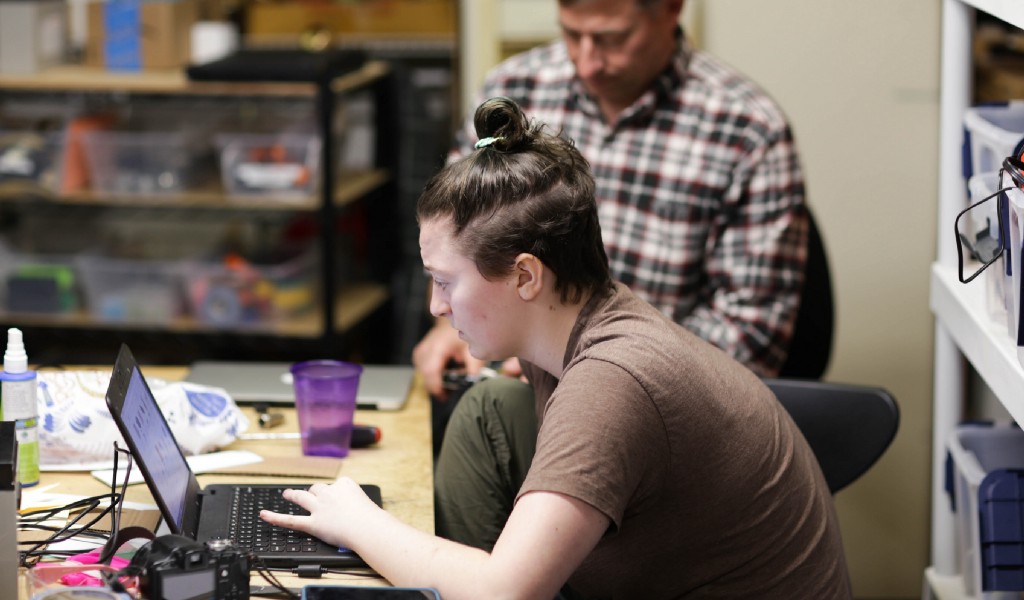
In August 2016, after a summer of planning and organizing, Jensen founded The Missfits, the first all-girls robotics team ever in San Francisco.
All along the process, The Missfits encountered a series of problems. Money was one of their topmost concerns. From the $6,000 registration fee as a FIRST Robotics Competition team to toolkit purchases and other expenses, Jensen was constantly in search of a steady supply for funding. She acquired support from sponsors including MKThink and GoldieBlox, a children’s multimedia company. The companies share a similar goal with Jensen — empowering girls to pursue a future in STEM. She also applied to various rookie grants that target applicants from new-founded teams like The Missfits.
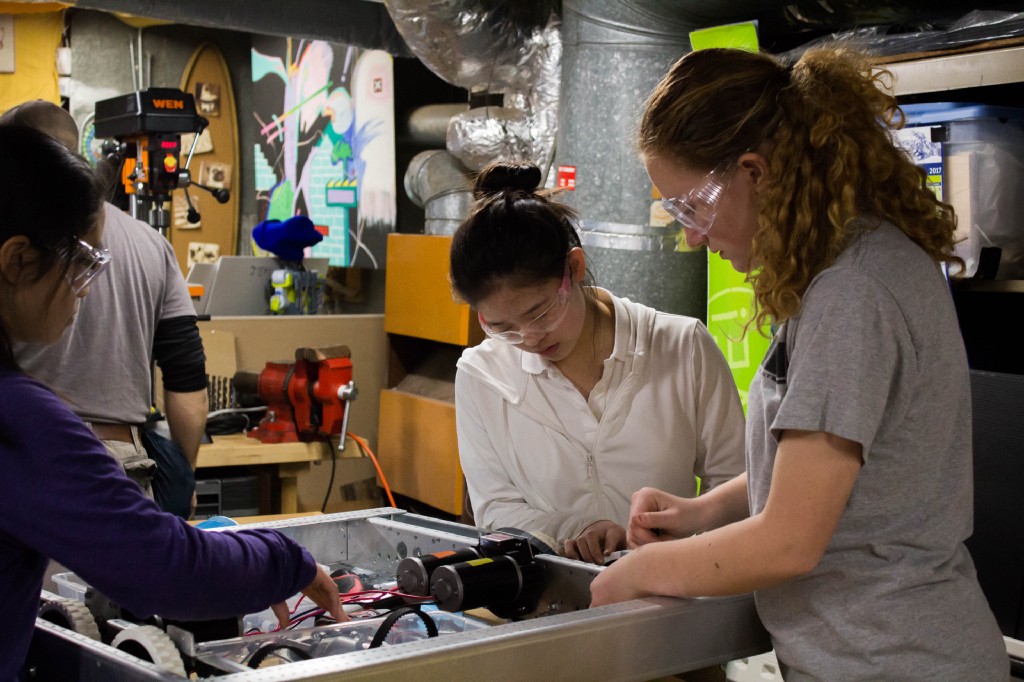
Jensen was able to recruit 22 high school girls from around the city to join the team by posting on social media, sending out massive amounts of emails, passing flyers around in the neighborhoods, and giving presentations at schools. With no previous experience required, the team aims to “create an open environment for girls to learn,” according to Jensen.
“Because you are the only girl there, there is more pressure for you.”

Jensen and other professional mentors hold bi-weekly workshops where they guide The Missfits into the exploration of robot building. During these workshops, senior Christine Sam has improved her skills in drilling and other aspects of engineering. Without any experience in mechanical work, Sam’s worry and discomfort were soon relieved with Jensen’s help and explanations. “There’s so many tools that I’ve never used,” Sam said. “But I’m learning how to adapt to them and using the easiest methods to construct a robot.”
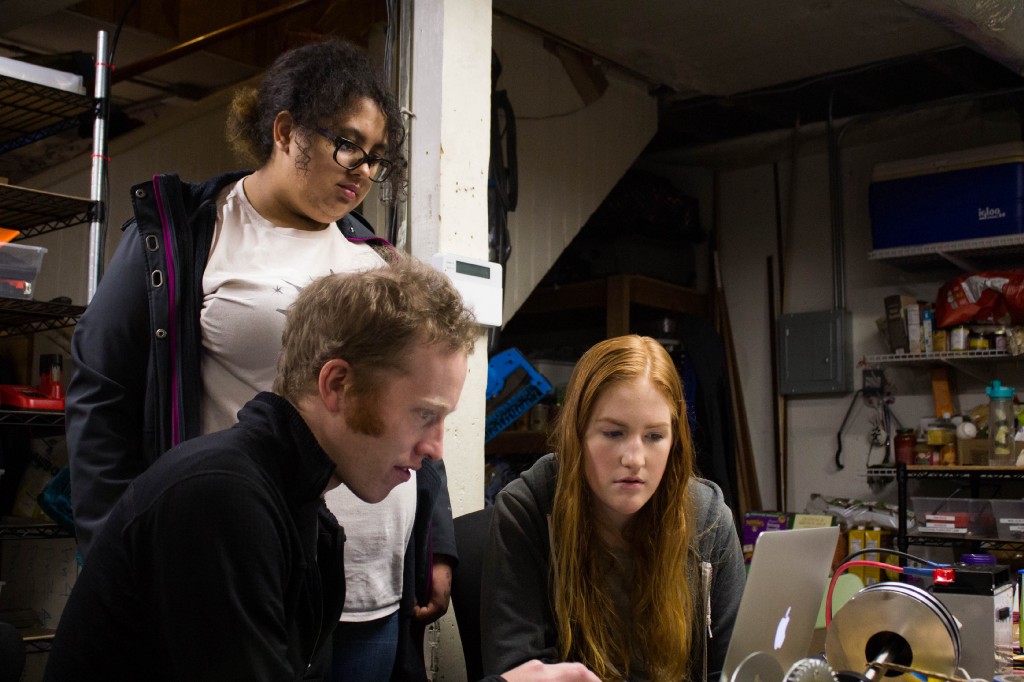
This coming March, The Missfits will participate in the FIRST Robotics Competition (FRC) San Francisco Regional competition where they will compete against the other 34 teams for qualification into the FIRST Championship. Currently, a six-week build season is underway. The team meets every day to build, program and practice with the robot. This period of time is not only a chance to cultivate team collaboration, but also a way for the members to develop their individuality. During the construction, each member focuses on a particular area they are most passionate about. “In build season, for me, I learned how much I really love engineering,” Jensen said. “I want these girls to have that chance to get that feeling too.”
Jensen felt very fortunate to grow up with a lot of different opportunities that exposed her to engineering, a field with less than 20% of female undergraduates enrolled in. Though there exists a combination of different factors, mental blocks have been a deterrent. “Because you are the only girl there, there is more pressure for you,” referee of FRC Melissa Smith said. “Having something like a robotics team helps break down the mysteries of engineering and teaches young people, especially girls, to project their needs and to go against the setup of our culture.”


